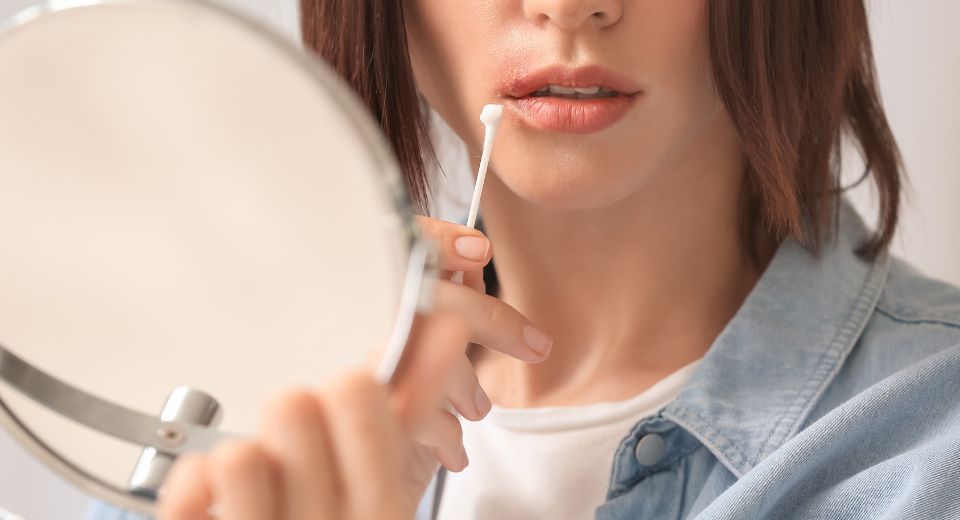If you’ve ever experienced a cold sore, then I know exactly how you feel. Cold sores are not only cosmetically unappealing, but they are downright painful. Let’s get over the fact they’re caused by the herpes virus. We all know it, and that aspect gets far too much attention. Defining cold sores is simple; they’re small, fluid filled lesions that pop up generally on or around your lips. They’re typically triggered by stress, lack of sleep, eating excess chocolate/sugar, hormonal changes, fatigue, sun exposure or a low immune system.
Though there is no true cure for the virus, the bright side is that there are a lot of preventative measures you can take to lessen the duration and severity of outbreaks. If you do feel the tingle that a blister is on its way, there are a decent number of home remedies that you can try to help ease your discomfort and help diminish their appearance.
One of the main secrets that I have learned over the years is the discovery of lemon balm. Lemon balm is a perennial herb from the mint family. The leaves, which have a smoothing lemon aroma, are known to have a calming effect. It can be inhaled as an aromatherapy, applied to irritated skin and consumed as a tea. So, how does lemon balm help? Lemon balm contains a chemical that fights and reduces the growth of some viruses. Which one do you ask? You guessed right, lemon balm helps fight the HSV-1 virus, or what we call the cold sore virus. Its magical powers ease the pain, burning and tingling sensation when an evil cold sore arises and not only does it taste good, but it truly has a calming effect. I haven’t had much success finding lemon balm in stores, so I order it in bulk off Amazon (it’s not expensive). I drink at least 1-2 cups a day and when I have an outbreak, I steep a lemon balm tea bag for a few minutes, take it out, let it cool and dab it right on the sore. The tingling eases, the pain diminishes and you’re left with a calm, cool and collected vibe.
Another tip to help prevent an outbreak is a diet rich in lysine. Lysine (L-lysine) is an amino acid that demonstrates antiviral activity, but most importantly it has been shown to block the virus that produces cold sores, called arginine (pronounced ar-gen-eene). Arginine (L-arginine) is also an amino acid and its foods are known to suppress lysine in the body and promote the growth of the cold sore virus. Avoiding foods that are rich in arginine is something that all people should consider if they ever have had a cold sore. Arginine-rich foods consist of chocolate, nuts, whole grains (such as rice and wheat), soybeans, oats, jams/jellies, lentils, spinach, watercress, coconut, raisins, gelatin and seaweed.
During an outbreak it’s best to stay clear of aggravating the cold sore, so minimizing the consumption of acidic foods and beverages such as pineapple, orange, grapefruit (among other citrus fruits), tomatoes, fruit juice, coffee (in excess), wine and soda will help keep the virus from spreading. Though it’s nearly impossible to stop a cold sore outbreak once it starts, a lysine rich diet is something I would highly consider. Lysine rich foods consist of vegetables, legumes, dairy (milk, yogurt, and cheese), fish, meat (such as pork chops, steak, and venison) and poultry. Now, I know what you’re thinking, there’s no way I’m going to cut out all arginine-rich foods, and it’s actually not recommended to do so. But cutting out and substituting some arginine foods will not only help prevent frequent outbreaks, but also cut the duration and severity of the cold sore when you get one.
We can help prevent these painful blisters that hinder people from being outdoors and social. There are a lot of people in this world affected by this virus and together, we can help prevent future outbreaks and finally have peace of mind.







